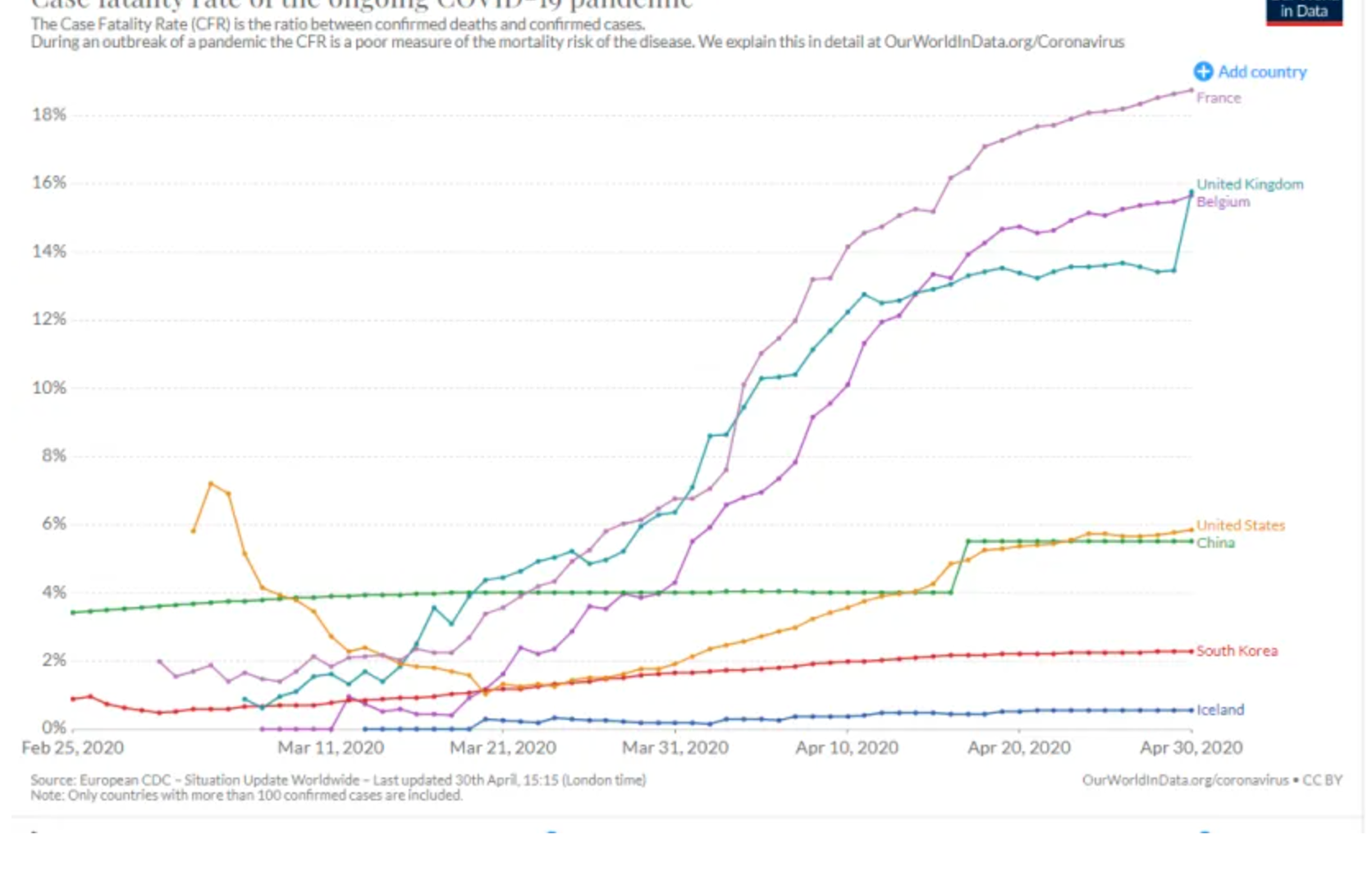 The world has been locked down for several weeks now, some countries longer than others. As the lockdown continues, economic consequences mount.
The world has been locked down for several weeks now, some countries longer than others. As the lockdown continues, economic consequences mount.
- Many businesses cannot sell their products and services
- People cannot buy many products and services
- People who cannot work from home have lost their jobs
- People’s normal routine has been seriously disrupted
Pressure is increasing on governments around the world to ease up on the lockdown strictures. This is to be expected. The freezing of the world economy cannot go on indefinitely. People must get back to work, producing products and services of value, or we all starve to death.
However, we can’t just turn the economy back on and resume business as usual. To do so would be disastrous. COVID-19 would come roaring back, replicating exponentially and restarting the wholesale death machine.
 How bad could that be? Consider the case of France, a modern, wealthy nation. As of April 30, the confirmed death rate from COVID-19 in France as 18.75%. That means that 18.75% of the people in France who were confirmed to be infected with COVID-19 died of it.
How bad could that be? Consider the case of France, a modern, wealthy nation. As of April 30, the confirmed death rate from COVID-19 in France as 18.75%. That means that 18.75% of the people in France who were confirmed to be infected with COVID-19 died of it.
Is that a lot?
Would you play Russian roulette with a six-chamber revolver? If you did, you would have a 16.67% chance of putting a bullet through your brain. At 18.75%, the chance of a resident of France dying from a COVID-19 infection they have contracted is greater than the chance of a depressed person dying from playing a round of Russian roulette. The ratio of confirmed deaths to confirmed infections in the United Kingdom and Belgium is almost as bad as that of France. I will not be travelling to any of those countries any time soon.
Some countries have been aggressive in instituting policies of social distancing, contact tracing, and quarantining those who have been exposed to an infected person. Other countries were even more prepared for the outbreak and snuffed it out before it had a chance to get out of control. South Korea is one example of such a country and Iceland is another.
Any opening of a nation’s economy must be done in a gradual and phased manner, with new practices of social distancing, mask wearing, hand washing, and surface disinfecting. We need to do these things as a bridge that will carry us to the day when everyone in the world can be vaccinated against the SARS-CoV-2 virus. We cannot afford to let the virus run rampant again.
Some places are relaxing their lockdowns already. Wuhan, China has started a phased opening. The infection rate there has been on a downward trend for a long time and very few new cases are being reported. The state of Georgia in the USA has recently relaxed some restrictions, by an executive order of the governor. He has received some pushback from mayors and other local leaders on this. It’s not clear that the infection rate there has dropped below the critical threshold of an R0 value less than one. When R0 is below one, that means that on average, an infected person will infect fewer than one other person. Some will infect nobody. Some will infect one other person. And very few will infect more than one other person. Some communities in Georgia may have an R0 less than one while others do not. This is something that should be done carefully, in a controlled manner, recognizing that circumstances may vary from one county to another.
Before it makes sense to relax lockdown restrictions, it is imperative to know who is infected and who is not. That requires testing. Since people who show no symptoms whatsoever, and who don’t even realize that they are infected, can transmit the virus, everyone needs to be tested. In the United States, we are nowhere near being able to do that. Meanwhile, the USA has the highest rate of infection in the world, and the count of cases continues to rise, without slowing down. Some states, such as New York, have already seen the peak, but others have not and are still ramping up.
Our political leaders face a difficult dilemma: How and when to relax some of the restrictions that we have been living under. May they choose wisely.
BIO:
Allen G. Taylor is a 40-year veteran of the computer industry and the author of over 40 books, including Develop Microsoft HoloLens Apps Now, Get Fit with Apple Watch, Cruise for Free, SQL For Dummies, 9th Edition, Crystal Reports 2008 For Dummies, Database Development For Dummies, Access Power Programming with VBA, and SQL All-In-One For Dummies, Third Edition. He lectures internationally on astronomy, databases, innovation, and entrepreneurship. He also teaches database development and Crystal Reports through a leading online education provider. For the latest news on Allen’s activities, check out his blog at wwwallengtaylor.com or contact him at allen.taylor@ieee.org.